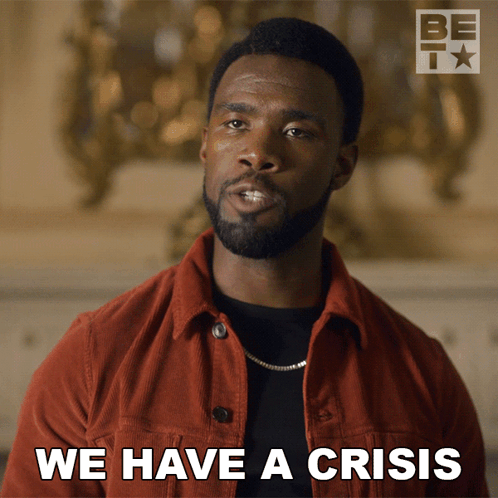Ever had that 2 AM wrestling match with your deepest fears? Jacob literally had one with God! In Genesis 32, our favorite trickster finds himself caught between his angry brother ahead and his messy past behind. What does he do? Sends gifts, splits his family into strategic groups, and then—plot twist—spends all night wrestling with a mysterious stranger who dislocates his hip, blesses him, and changes his name. Talk about an identity upgrade through divine throwdown! This isn't just a weird Bible story—it's a blueprint for transformation that happens when we finally stop running and face God directly.
The Choreography of Crisis Management
Genesis 32 moves with the desperation of human fear. "Jacob was greatly afraid and distressed." This honest admission sets the stage for everything that follows. The pattern is revealing:
Crisis looms → Human strategy deployed → Divine encounter disrupts plans → Wrestle all night → Transformation through surrender
This isn't just narrative progression – it's exposing something profound about spiritual growth. We calculate and strategize, but true transformation comes through direct, even painful, engagement with God. Each verse builds upon the previous one, creating an intricate picture of how God meets us in our moments of greatest vulnerability.
Breaking Down the Chapter
Verses 1-2: Jacob meets angels at Mahanaim
Verses 3-5: Cautious message sent to Esau
Verses 6-8: Fear strikes as Esau approaches with 400 men
Verses 9-12: Jacob's prayer reveals growth and honesty
Verses 13-21: Elaborate gift strategy to appease Esau
Verses 22-32: Wrestling match results in blessing and new identity
But here's what's fascinating – notice the structure? The chapter begins with Jacob seeing God's angels (a divine encounter he doesn't engage with) and ends with him wrestling God face to face. It moves from passive observation to active engagement, from strategic maneuvering to vulnerable surrender.
The Human Element: Night Wrestling
When we reach Jacob's riverside encounter, the text becomes electric. Alone in the darkness, vulnerable and afraid, he engages in the most bizarre and profound spiritual encounter of his life. "So Jacob was left alone, and a man wrestled with him till daybreak" (Genesis 32:24).
This is revolutionary. In a world where approaching deities was formal, ritualistic, and often mediated through sacrifice, Genesis depicts direct, physical, all-night engagement with God. Jacob doesn't just worship from afar—he clings, struggles, and refuses to let go without blessing.
Theologically, this wrestling match shatters conventional understanding of divine-human interaction. It reveals a God who doesn't demand perfection before engagement but meets us in our messiness. The physical nature of the struggle represents the tangible reality of spiritual formation—it's not merely intellectual or emotional, but involves our whole being. The all-night duration demonstrates that transformation often requires endurance through prolonged struggle rather than instant revelation. Most profoundly, Jacob's hip dislocation shows that genuine divine encounters often leave us changed in unexpected ways—we walk differently after wrestling with God. This narrative fundamentally reframes spirituality not as passive reception of divine decrees but as active, persistent engagement with a God who is willing to meet us face-to-face in our darkest hours.
WALK THRU TRIVIA CHALLENGE
Question: In Genesis 32, Jacob wrestled with God and received a new name. But something else physically changed about Jacob after this divine wrestling match. What was it?
A) His face glowed like Moses' would later glow after meeting with God
B) He walked with a limp because his hip was wrenched during the struggle
C) His hand became permanently stretched out from holding onto God all night
D) His eyes were enhanced and he gained the ability to see angels clearly
Check your answer below!
Answer: B) He walked with a limp because his hip was wrenched during the struggle
Genesis 32:31 says, "The sun rose above him as he passed Peniel, and he was limping because of his hip." This physical mark became a permanent reminder of Jacob's transformative encounter with God - a visible sign of both blessing and struggle that likely stayed with him for the rest of his life.
Christ as our Transformer
Genesis 32 anticipates the gospel in profound ways. Just as Jacob found himself permanently marked by his encounter with God (limping from his dislocated hip), followers of Jesus bear marks of their own transformation. Jacob's new name, Israel ("he struggles with God"), foreshadows how wrestling with God—bringing our doubts, fears, and authentic selves—becomes central to spiritual formation.
The mysterious wrestler's question—"What is your name?"—parallels how Christ calls us to honest self-disclosure before transformation. Just as Jacob needed to speak his name (which meant "deceiver") before receiving his new identity, we must come honestly before Christ to receive our new identity in Him.
Most powerfully, Jacob declares "I saw God face to face, and yet my life was spared," pointing directly to Christ who would one day make seeing God face to face possible for all believers.
HE WOULDN'T LET GO!!!
The most remarkable aspect of Genesis 32 isn't just that Jacob wrestled with God—it's that he REFUSED TO LET GO. "I will not let you go unless you bless me."
Think about that! The same man who had manipulated, schemed, and run from consequences throughout his life finally found something he was willing to fight for face-to-face. No more proxies, no more tricks, no more running—just Jacob, God, and desperate determination.
This isn't a minor detail—it's a spiritual revelation! It shows that transformation comes not through casual religious observance but through tenacious engagement with God. Jacob literally clung to God despite pain, exhaustion, and a dislocated hip because he understood something profound: his blessing was worth the struggle.
And the divine response? Not rejection for Jacob's audacity, but blessing beyond what he could have orchestrated for himself. A new name. A new identity. A divine declaration over his life.
Here's the transformative truth: God doesn't necessarily meet us in our carefully constructed religious performances. He often meets us in our darkest nights, our places of isolation, our moments of greatest fear—and the encounter often leaves us walking differently for the rest of our lives.
If Jacob could be transformed through his all-night wrestling match with God, imagine what persistent, honest, hold-nothing-back engagement with God might do in your life!
Your Turn to Walk Through
As you read Genesis 32 again (and I encourage you to do so), consider:
How does Jacob's wrestling match with God reshape your understanding of spiritual formation?
Where do you see yourself in this story—carefully strategizing like early-chapter Jacob, or vulnerably wrestling like late-chapter Jacob?
What would it mean for you to "not let go until God blesses you" in your current circumstances?
Remember, this isn't just an ancient patriarch's strange night encounter—it's a blueprint for transformation, a testament to God's willingness to engage with us in our desperation, and an invitation to stop running and start wrestling.
Join the Conversation
Genesis 32 isn't just an ancient story—it's a powerful picture of what giving your life to Jesus truly means. Like Jacob, we all reach moments when our past catches up to us and our carefully constructed plans fall short. We stand alone in the darkness, facing who we've truly been. It's precisely at this moment—when we're most vulnerable—that Jesus meets us, not with condemnation but with an invitation to wrestle honestly, to cling desperately, to refuse to let go until blessing comes.
Giving your life to Jesus isn't about perfectly performed religious rituals; it's about this kind of authentic, all-in engagement. It means acknowledging your true name—who you've really been—and allowing Him to give you a new identity. It means being willing to walk differently afterward, even with a limp, marked forever by the encounter.
Jacob's transformation from deceiver to Israel ("one who struggles with God") mirrors what Jesus offers each of us: not an escape from struggle, but transformation through it. The question isn't whether you'll face your darkest night, but whether you'll wrestle through it alone or cling to the One who can turn your struggle into blessing.









